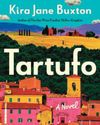
But then there's also Henry Cavill's role in Enola Holmes, where Sherlock was a bit character, and the star of the story was his little sister.
What about the retellings that don't have Sherlock translated so directly? Dr. Gregory House of the hit TV show "House," for example, is a known adaptation of Holmes, with homages to the original story sprinkled throughout the show (like the fact that his apartment is 221B).
And when it comes to unpaid creative work, a quick check on the fan fiction site Archive of Our Own shows that as of writing this article, there are 139,718 works with the tag "Sherlock Holmes." There are more retellings out there than I could ever hope to count, and there are more being written by the day. Whether it's Jane Austen, Mary Shelley, William Shakespeare, or well-loved myths, you might be called to retell a story through a brand new lens. Before you dive into it, here are some aspects to consider.
FIGURE OUT YOUR "WHY"
The story has already been told successfully-so why do you want to retell it? What is going to be different about the way you tell the story that will add something to the original tale? What will your voice add to the conversation that the original author started?
This is going to be the most important part of the retelling process. Because if you can't answer how your story will put a special spin on the original tale, then you'll probably have a hard time making your book stand out among the crowd later on.
Diese Geschichte stammt aus der May - June 2024-Ausgabe von Writer’s Digest.
Starten Sie Ihre 7-tägige kostenlose Testversion von Magzter GOLD, um auf Tausende kuratierte Premium-Storys sowie über 8.000 Zeitschriften und Zeitungen zuzugreifen.
Bereits Abonnent ? Anmelden
Diese Geschichte stammt aus der May - June 2024-Ausgabe von Writer’s Digest.
Starten Sie Ihre 7-tägige kostenlose Testversion von Magzter GOLD, um auf Tausende kuratierte Premium-Storys sowie über 8.000 Zeitschriften und Zeitungen zuzugreifen.
Bereits Abonnent? Anmelden

What Is Your Story Question?
Revision and editing advice to take your first draft to the next level.

Writing for the People We Hope to Become
Elisa Stone Leahy's new middle-grade novel, Mallory in Full Color, tackles the in-between moments of adolescence, when who we are and who we want to become collide.

Creating Community
Whether hot off the presses or on the shelves for years, a good book is worth talking about.

Pat Barker
The Booker Prize-winning author of Regeneration shares the role characters play in developing novel ideas and explains what appeals to her about reimagining mythology.

How to Write in Different Genres
Emiko Jean and Yulin Kuang share tips and strategies for how they successfully write in different genres and mediums.

The Shortest Distance Between Two Points
Ten tips for writing a novel with 100-word stories.

Mayfly Marketing
How to sell your novel in a short-attention-span world.

"You'll be a great essay".
How to write six types of personal essays by finding the funny in your life.

The Idea Factory
Tired of staring at an empty screen? Unlock your inner fiction generator with these surprising inspiration techniques.

Seinfeld Was Right: That's a Story
Use mundane moments from everyday life to create stories that pack a punch.